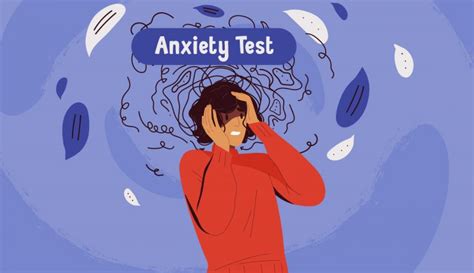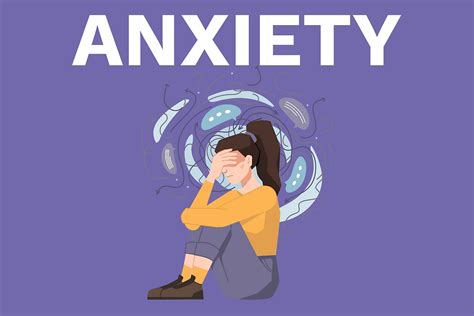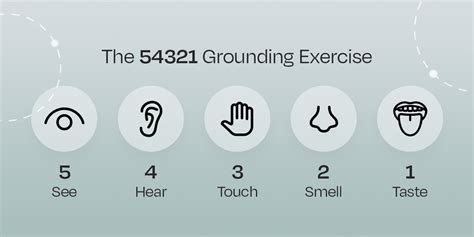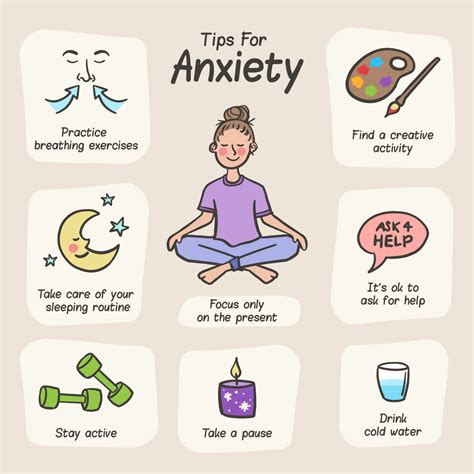Intro
Are you tired of feeling like you're walking on eggshells, never knowing when your worries will escalate into a full-blown anxiety attack? Do you often find yourself ruminating on worst-case scenarios, unable to shake off the feeling of impending doom? If so, you're not alone. Anxiety is a common mental health condition that affects millions of people worldwide, causing significant distress and impairment in daily life.
Anxiety can manifest in different ways, making it challenging to recognize and diagnose. Some people may experience intense fear or panic, while others may feel a persistent sense of unease or restlessness. If you're unsure whether your feelings of anxiety are normal or a sign of a deeper issue, take our quiz to find out.

Understanding Anxiety
Before we dive into the quiz, it's essential to understand what anxiety is and how it affects people. Anxiety is a normal human emotion characterized by feelings of worry, nervousness, or fear. It's a natural response to stress, and everyone experiences it at some point in their lives. However, when anxiety becomes excessive, persistent, and interferes with daily life, it may be a sign of an anxiety disorder.
There are several types of anxiety disorders, including:
- Generalized Anxiety Disorder (GAD): excessive and persistent worry about everyday things
- Panic Disorder: recurring panic attacks and fear of experiencing another episode
- Social Anxiety Disorder: fear of social or performance situations
- Specific Phobias: intense fear of a specific object, situation, or activity
- Obsessive-Compulsive Disorder (OCD): recurring, intrusive thoughts and compulsions to perform specific rituals or behaviors
How Anxiety Affects Daily Life
Anxiety can impact various aspects of daily life, including:
- Relationships: anxiety can lead to social withdrawal, conflicts, and strained relationships
- Work or school: anxiety can affect performance, attendance, and overall well-being
- Physical health: anxiety can contribute to headaches, stomach problems, and sleep disturbances
- Mental health: anxiety can increase the risk of developing other mental health conditions, such as depression

The Quiz: Do I Have Anxiety?
Take this quiz to help you determine whether your feelings of anxiety are normal or a sign of a deeper issue. Please answer the questions honestly, and remember that only a qualified mental health professional can provide an accurate diagnosis.
-
How often do you feel anxious or worried? a) Rarely b) Occasionally c) Often d) Almost always
-
How intense are your anxiety symptoms? a) Mild b) Moderate c) Severe d) Extremely severe
-
Do you experience physical symptoms when you're anxious, such as a racing heart or trembling? a) Yes b) No
-
Do you avoid certain situations or activities because they make you feel anxious? a) Yes b) No
-
Have you experienced any traumatic events in your life that may be contributing to your anxiety? a) Yes b) No
-
Do you have difficulty sleeping or concentrating due to anxiety? a) Yes b) No
-
Have you noticed any changes in your appetite or eating habits due to anxiety? a) Yes b) No
-
Do you feel like you're constantly "on edge" or "on the lookout" for potential threats? a) Yes b) No
-
Have you tried to self-medicate with substances or behaviors to manage your anxiety? a) Yes b) No
-
Have you experienced any anxiety symptoms that have lasted for more than six months? a) Yes b) No

Scoring and Interpretation
Add up the number of "a" answers you selected. If you scored:
- 0-3: You may experience some anxiety, but it's likely not a significant issue.
- 4-6: You may be experiencing some anxiety symptoms, but it's not severe.
- 7-10: You may be experiencing moderate to severe anxiety symptoms.
Keep in mind that this quiz is not a substitute for a professional diagnosis. If you're concerned about your anxiety symptoms, consult with a mental health professional for an accurate evaluation and guidance.
What to Do Next
If you've determined that you may be experiencing anxiety symptoms, there are several steps you can take to manage your anxiety:
- Seek professional help: Consult with a mental health professional, such as a therapist or counselor, who can provide you with an accurate diagnosis and develop a treatment plan.
- Practice relaxation techniques: Try relaxation techniques, such as deep breathing, progressive muscle relaxation, or meditation, to help manage your anxiety symptoms.
- Engage in physical activity: Regular exercise can help reduce anxiety symptoms by releasing endorphins, also known as "feel-good" hormones.
- Challenge negative thoughts: Learn to recognize and challenge negative thought patterns that contribute to your anxiety.

Conclusion
Anxiety is a common mental health condition that can significantly impact daily life. By taking this quiz, you've taken the first step towards understanding your anxiety symptoms and seeking help. Remember that anxiety is treatable, and with the right support and resources, you can manage your symptoms and improve your overall well-being.
What is anxiety?
+Anxiety is a normal human emotion characterized by feelings of worry, nervousness, or fear. It's a natural response to stress, and everyone experiences it at some point in their lives.
What are the different types of anxiety disorders?
+There are several types of anxiety disorders, including Generalized Anxiety Disorder (GAD), Panic Disorder, Social Anxiety Disorder, Specific Phobias, and Obsessive-Compulsive Disorder (OCD).
How can I manage my anxiety symptoms?
+There are several ways to manage anxiety symptoms, including seeking professional help, practicing relaxation techniques, engaging in physical activity, and challenging negative thoughts.
